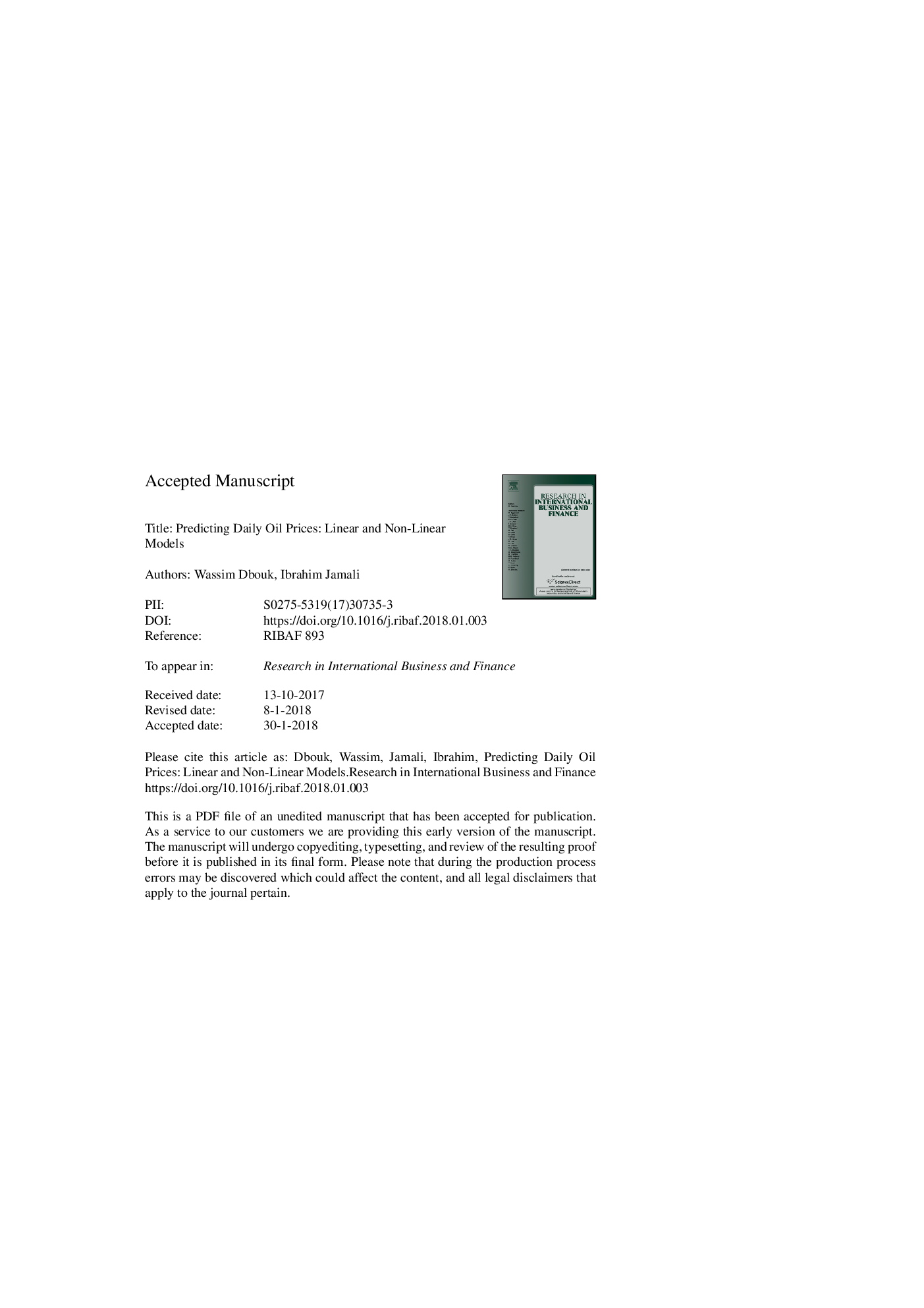| Article ID | Journal | Published Year | Pages | File Type |
|---|---|---|---|---|
| 10226875 | Research in International Business and Finance | 2018 | 41 Pages |
Abstract
In this paper, we assess the accuracy of linear and nonlinear models in predicting daily crude oil prices. Competing forecasts of crude oil prices are generated from parsimonious linear models which require no parameter estimation, as well as linear and nonlinear models. Two of the linear models that we employ exploit the informational content of oil demand and the increasing correlation between oil and equity prices and are novel to the literature. The nonlinear model that we consider is an artificial neural network. More specifically, we consider a bagged neural network, a neural network trained using the genetic algorithm as well as a neural network with fuzzy logic. We find that some of the linear models outperform the random walk in terms of out-of-sample statistical forecast accuracy. Our findings also suggest that while the buy-and-hold strategy dominates some of the models in terms of dollar payoffs and risk-adjusted returns under a long-only strategy, all the models that we consider generate higher dollar payoffs than the buy-and-hold strategy under the short-only strategy. An investor obtains the largest profits by trading based on the moving average convergence divergence which is a technical indicator.
Keywords
Related Topics
Social Sciences and Humanities
Business, Management and Accounting
Business and International Management
Authors
Wassim Dbouk, Ibrahim Jamali,
